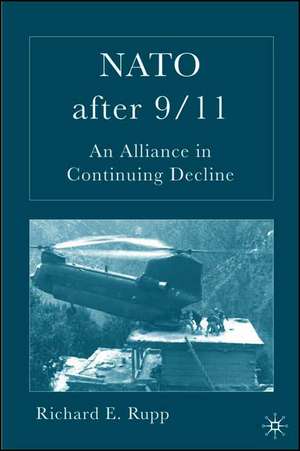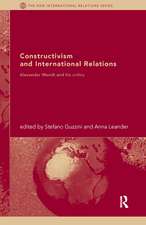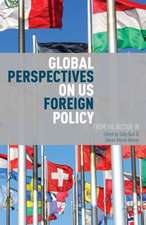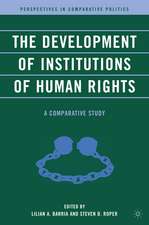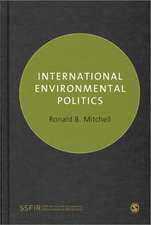NATO After 9/11: An Alliance in Continuing Decline
Autor R. Ruppen Limba Engleză Hardback – 28 iul 2006
Preț: 305.26 lei
Nou
Puncte Express: 458
Preț estimativ în valută:
58.42€ • 60.76$ • 48.23£
58.42€ • 60.76$ • 48.23£
Carte disponibilă
Livrare economică 24 martie-07 aprilie
Preluare comenzi: 021 569.72.76
Specificații
ISBN-13: 9781403971883
ISBN-10: 1403971889
Pagini: 282
Ilustrații: XIV, 282 p.
Dimensiuni: 140 x 216 x 22 mm
Greutate: 0.45 kg
Ediția:2006
Editura: Palgrave Macmillan US
Colecția Palgrave Macmillan
Locul publicării:New York, United States
ISBN-10: 1403971889
Pagini: 282
Ilustrații: XIV, 282 p.
Dimensiuni: 140 x 216 x 22 mm
Greutate: 0.45 kg
Ediția:2006
Editura: Palgrave Macmillan US
Colecția Palgrave Macmillan
Locul publicării:New York, United States
Cuprins
Introduction National Interests and Military Alliances: The Cold War NATO NATO's Post-Cold War Transition and the Transatlantic Divide September 11, 2001: A New Life for NATO? An Alliance in Name Only: NATO and Iraq Afghanistan: NATO's Last Hurrah? Reinventing NATO: Scenarios and Hurdles Conclusions
Recenzii
'NATO after 9/11: An Alliance in Continuing Decline is the most important book on the transatlantic relationship to appear in the past decade. Richard Rupp builds a compelling case that the expanded version of NATO, focused on missions outside of Europe, exhibits only superficial health. The underlying reality is an alliance that lacks cohesion and increasingly lacks the capability to act effectively even when there is general agreement on a policy initiative.This meticulously researched, clearly written book is must reading for anyone interested in the future of NATO.' - Ted Galen Carpenter, Vice President, Defense and Foreign Policy Studies, Cato Institute
'Since the end of the Cold War, endless editorials and journal articles have superficially fuelled the 'NATO is dead' thesis. With Rupp's important work, we finally have a scholarly and densely argued book which submits that thesis to a rigorous scrutiny. Rupp's analysis is searching and sophisticated, comprehensive and coherent. This is not the loaded logic of the isolationist, the pacifist or the neo-conservative. Nor is it an autopsy. It is the honest and reluctant, but nevertheless categorical, conclusion of a NATO insider who does not balk at making an unwelcome case: put simply, that NATO is increasingly peripheral to the security requirements of its member states. For all those interested in transatlantic relations, international security and Alliance transformation, Rupp's book must be required reading.' - Jolyon Howorth, Yale University
'Since the end of the Cold War, endless editorials and journal articles have superficially fuelled the 'NATO is dead' thesis. With Rupp's important work, we finally have a scholarly and densely argued book which submits that thesis to a rigorous scrutiny. Rupp's analysis is searching and sophisticated, comprehensive and coherent. This is not the loaded logic of the isolationist, the pacifist or the neo-conservative. Nor is it an autopsy. It is the honest and reluctant, but nevertheless categorical, conclusion of a NATO insider who does not balk at making an unwelcome case: put simply, that NATO is increasingly peripheral to the security requirements of its member states. For all those interested in transatlantic relations, international security and Alliance transformation, Rupp's book must be required reading.' - Jolyon Howorth, Yale University
Notă biografică
RICHARD E. RUPP is an Assistant Professor of Political Science at Purdue University, Calumet, USA.
